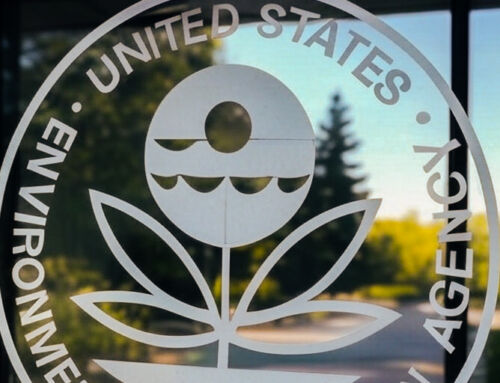View by Topic
Recent Articles
-
NYC Building Electrification Ruling is Interesting But Not a Game ChangerSaturday, March 29th, 2025
-
Greenpeace Ordered to Pay $667M in Blow to ActivismSaturday, March 22nd, 2025
-
The Most Consequential Day of Environmental Deregulation in American HistorySaturday, March 15th, 2025
-
States Challenge Validity of New York’s Climate Change Superfund ActSaturday, March 8th, 2025
-
House Votes to Protect the Hot Water Heater in Your HouseSaturday, March 1st, 2025
View by Month/Year
“Green Building Law Update” Headlines
Recent Articles & News from
Stuart Kaplow’s blog
at GreenBuildingLawUpdate.com
- NYC Building Electrification Ruling is Interesting But Not a Game Changer March 30, 2025
- Greenpeace Ordered to Pay $667M in Legal Blow to Environmental Activism March 23, 2025
- The Most Consequential Day of Environmental Deregulation in American History March 16, 2025
- States Challenge Validity of New York’s Climate Change Superfund Act March 9, 2025
Subscribe to the Green Building Law Update!
Stuart Kaplow brings his expertise and extensive experience to the table with his unique digital publication, "Green Building Law Update". Subscribers receive regular updates to keep them informed about important issues surrounding Environmental Law, Green Building & Real Estate Law, as well as the emerging demand for Environmental Social Governance (ESG).
Get fresh content through the lense of Stuart Kaplow's cutting-edge expertise, innovative commentary and insider perspective. Don't miss another issue! Subscribe below.

ESG is an Opportunity for Commercial Landlords
Update: On May 30, 2023, the California Climate Corporate Accountability Act passed the state Senate 24-9 with a vote in the Assembly pending. The bill is expected to be enacted and Governor Newsom has reportedly said he will sign it.
At first blush, the California Climate Corporate Accountability Act requires only a small number of the biggest corporations in California generating more than $1 Billion in annual revenue to report their greenhouse gas emissions, but a thoughtful consideration makes clear that if enacted SB 260 will require carbon reporting by thousands if not tens of thousands of businesses across the country that are indirect sources or otherwise in the “supply chain” for those largest California companies.
This is much more than only applying to Amazon and Walmart, .. and their supply chains. Carbon reporting will be required by organizations, people, activities, information and resources involved in supplying a product or service in California (e.g., does this apply to a company that advertises on California based Google?).
There has been a lot of talk in recent months about supply chain including that during the pandemic supply chain delays and shortages are real. The ‘just in time’ delivery supply chain mantras of the 1980s promising lower costs through no inventory and efficient logistics seem a distant memory.
And businesses large and small have come to appreciate that supply chain is key to ESG. How a company should measure supply chain ESG is today little defined. But we know with certainty it is much more than only the Scope 3 indirect GHG emissions downstream in an organization that received much lip service in the last decade.
Pendant to those Scope 3 downstream businesses, many more will be impacted by this California law and other coming ESG regulations, enabling a large number of businesses to do their part to repair the world while taking advantage of ESG opportunities.
Increasing numbers of businesses are today wary of solar panels, requiring supply chain contracts to comply with the new Uyghur Forced Labor Prevention Act by including express language overcoming the presumption under the (still being phased in) law that all “products produced in the Xinjiang region [where more than 80% of the world’s solar panels are sourced] are barred from importation into the United States” and concerned about the S (social) in ESG where China’s repression of the Uyghur minority is such that it amounts to genocide according to the U.S. government and The Group of Seven.
Commercial real estate may be the best ESG supply chain opportunity. It offers a positive that the supply chain contract, the lease, is in writing. Additionally, the fixed asset supply is multi-year, and easy to monitor and verify. Moreover, that interest in real estate is often the largest component of a business’s total assets, allowing it to be properly heavily weighted in ESG disclosures.
LEED, Green Globes, and other third party verified green building rating systems provide certainty able to satisfy the E (environmental) in ESG for many organizations. Even a building owner not pursuing green certification can take advantage of benchmarking against specific credits within those green building rating systems (e.g., making a claim that a company’s building is constructed with bird collision deterrence features, as evidenced by compliance with that particular LEED credit, but not the entire LEED rating system).
The overwhelming number of businesses that exist in a supply chain rent the real estate their business occupies presenting an opportunity for commercial landlords to lure prospective tenants with ESG disclosures that the tenant may leverage for its ESG purposes and provide value added and greater ROI for that premises.
Whether or not (.. okay, when) the California bill becomes law and whatever the form of other ESG laws expected in 2022 and beyond, modern society has come to expect that the correct role of companies is not the 1980s Milton Friedman only creating stockholder value, but to take responsibility to work toward achieving a more perfect world, from the natural environment to inequality.
However, there is a concomitant issue of whether the California legislature should be setting environmental policy that governs the entire country?
Rabbi Tarfon’s admonition in the first century CE has as much application for individuals and businesses today as it did then, “It is not your responsibility to finish the work [of perfecting the world], but you are not free to desist from it either.”
ESG has become such a large component of my law practice that I am now collaborating with a group of daring, innovative and creative attorneys in ESG Legal Solutions, LLC, a boutique ESG driven non-law and consulting firm “powering sustainability, today, for tomorrow’s business.” Nancy Hudes and I are now publishing a blog www.ESGLegalSolutions.com (.. yes, this website will continue). This post originally appeared in that blog. If we can assist you or someone you work with in ESG strategy and solutions, from specific project implementation to fully outsourced managed services, do not hesitate to reach out to me.









